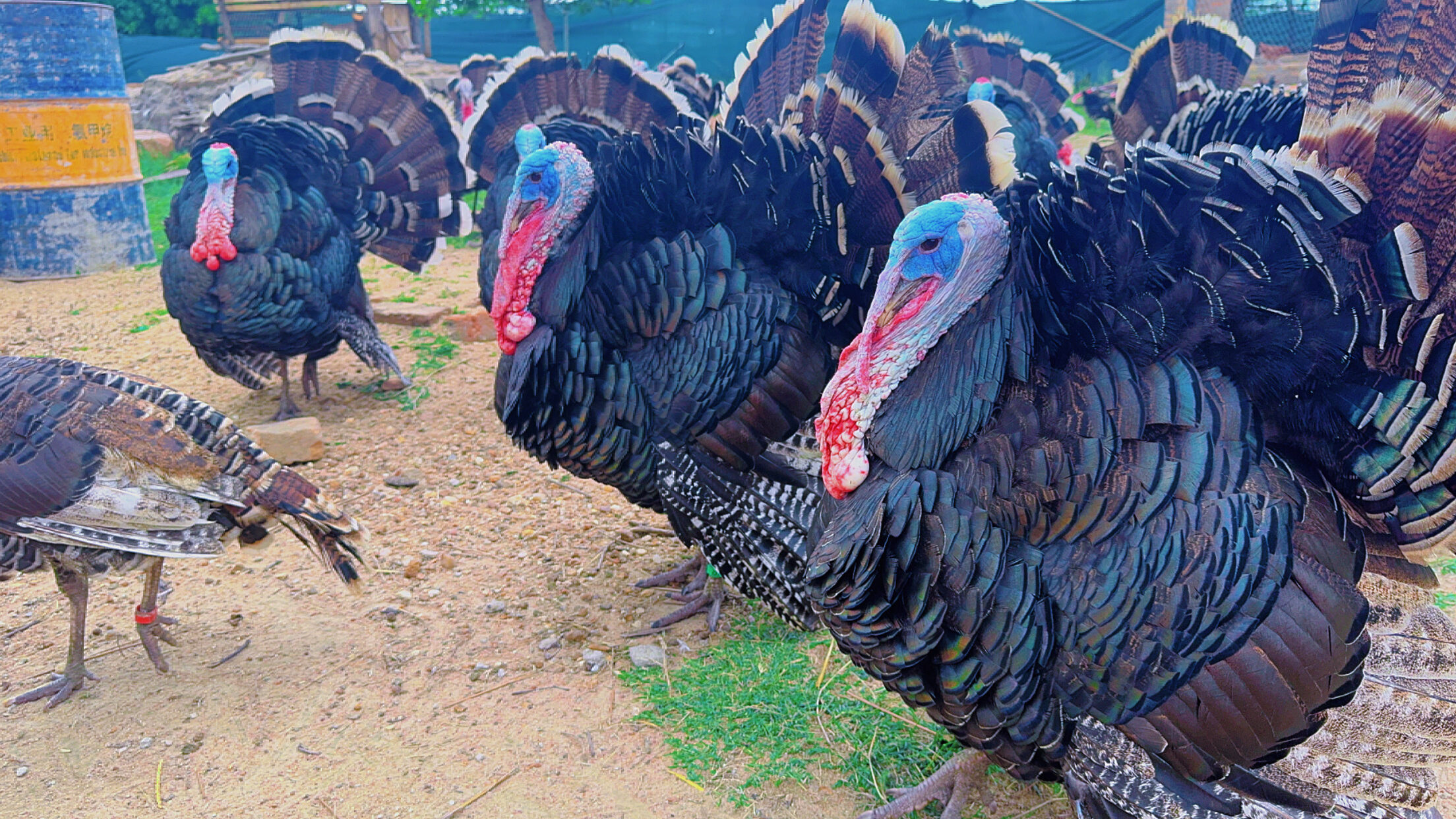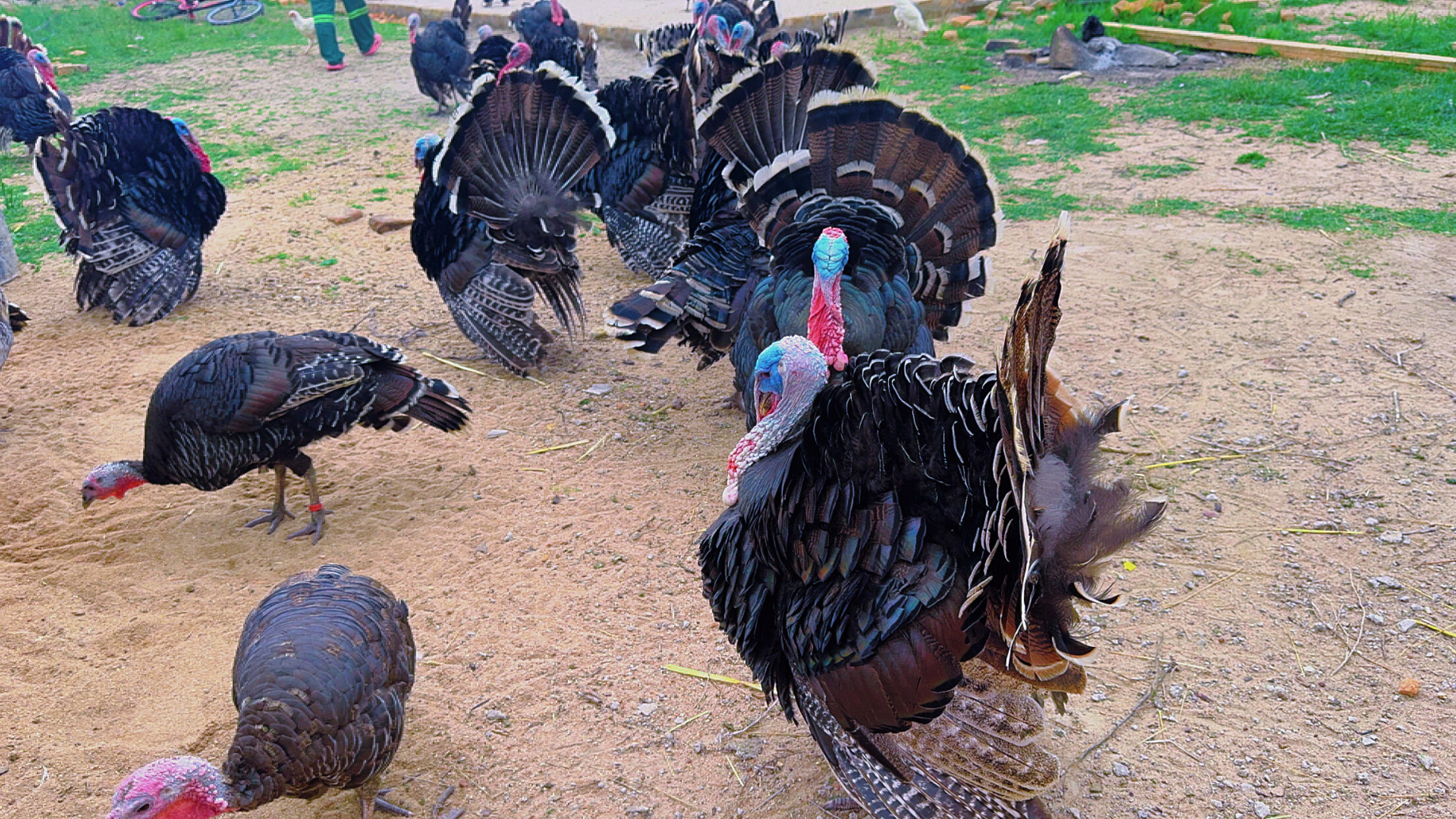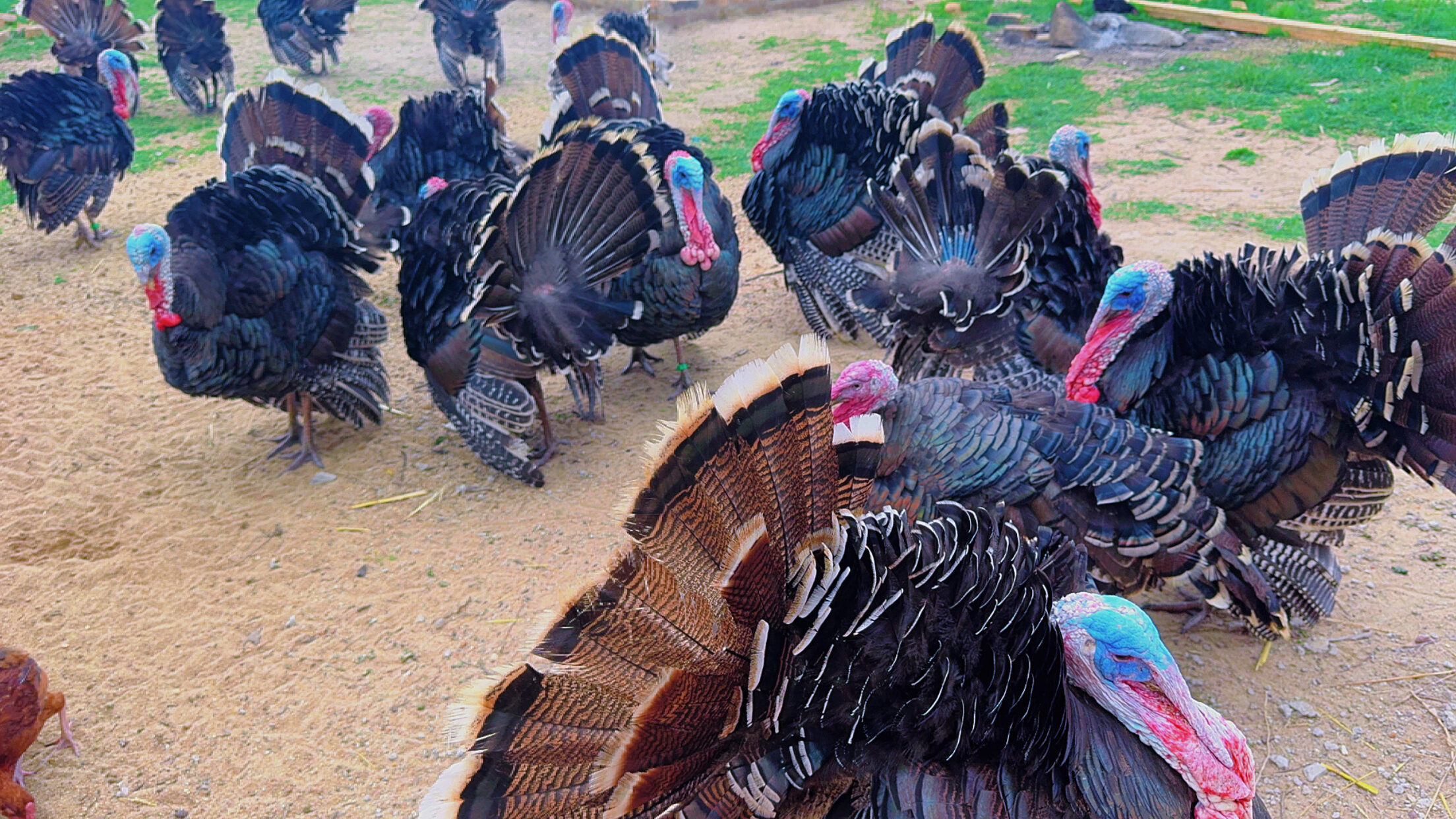History of Bronze Turkeys
Bronze Turkeys were developed in North America in the early 19th century, resulting from the breeding of native wild turkeys with imported European breeds. They quickly gained popularity due to their impressive size and the quality of their meat. Historically, Bronze Turkeys were widely raised for meat production and became famous for their rich flavor. Today, they are recognized as a heritage breed and are cherished by poultry enthusiasts for their hardy nature and excellent taste
Appearance of Bronze Turkeys
Bronze Turkeys are characterized by their striking feathers that feature a mix of bronze, black, and green shades. Their large, proud stature, coupled with a distinctive iridescent sheen, gives them a majestic look. The males, known as toms, display a more pronounced feathering pattern, especially during mating displays, while females have a more understated appearance
Bronze Turkeys Physical Characteristics
Bronze Turkeys weigh between 4.5 to 9 kilograms for hens and 8 to 12 kilograms for toms. They possess a broad breast and a solid, muscular build, which contributes to their reputation for quality meat. Their long legs and sturdy frame make them well-adapted for foraging, while their strong wings allow them to have limited flight capabilities.
Temperament and Disposition
Known for their calm and social temperament, Bronze Turkeys are generally friendly and easy to manage. They are inquisitive birds that enjoy exploring their surroundings, making them excellent for free-range settings. Their sociable nature allows them to coexist peacefully with other poultry, adding to their appeal for backyard farmers.
Egg Laying
ronze Turkeys are not primarily raised for their eggs; however, hens can produce around 50 to 100 eggs annually, which are typically used for hatching purposes rather than for consumption. Their lifespan is approximately 5 to 10 years, depending on the care they receive. With the right management, they can provide a sustainable source of meat and companionship for year.
























Reviews
There are no reviews yet.